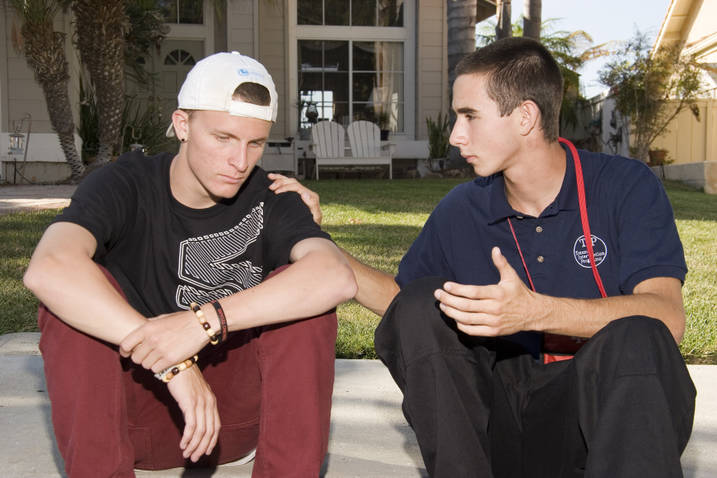What happens when you lose your job, your husband leaves you, and your mother dies — all in the same week? What happens when you accidentally run over and kill a 12-year-old boy biking to your daughter’s birthday party?
Mandy Atkisson was the person called in to help with both scenarios. Atkisson is the chief developer of the organization that trained her to respond to these traumatic events: Trauma Intervention Program National, which now has a branch in Western North Carolina.
“Basically, our whole thing is citizens helping citizens,” Atkisson explains. “Tragedies happen every day, everywhere. We are not talking about a major school shooting or hurricanes. Those things happen and a lot of people respond to those, but we are here for an individual going through something like the trauma of a father or a husband who suffers a heart attack. No one knows what to say or do. People don’t know how to be helpful.” The recipient of a $100,000 grant from Harvard University, TIP was developed to help stabilize these situations. The volunteers, who commit to 50 hours of training, help the individual make phone calls, arrangements, or simply sit, listen, and provide emotional support.
Funded partly by grants, private donors and from participating counties, TIP is moving forward with helping Western North Carolina. Volunteers sign up for three 12-hour shifts per month, and, when called in, must drop whatever they are doing and arrive on the scene. “Volunteers are dispatched and arrive at the same time as police and fire department, who are then introduced by the emergency responders,” Atkisson explains. “Police and fire department have their job to do, so they don’t always have time to sit with the family and make phone calls. TIP has a directory of phone numbers and addresses at their fingertips to help the individual stay grounded and do what they need to do.”
Volunteers are trained first in emotional first aid by two national TIP trainers, one of which will be Atkisson in WNC. “A lot of volunteers have had trauma themselves, and they were alone and had a hard time,” Atkisson says. “What they remember is generally 24-48 hours after, but emotional first aid is vital in the immediate trauma for stabilization, helping the person understand what is going on and directing them to whatever other services are available.” The second half of the training is learning to work within the emergency response system, so when a volunteer is on the scene, they know boundaries, what to do, how to do it and not be in the way of emergency personnel. They learn ways to be helpful and provide resources. “People need help finding counseling, where to find a free hotel room, what to do to get their house boarded up if there is a fire. TIP provides phone numbers without suggesting one place over another,” Atkisson says.
Though the TIP volunteer training is $45 and 50 hours of class time, Atkisson believes it is worth the expense. “You have to really want to do it, to commit,” she says. “I was much more appreciative of my life. I could go home and say, ‘Gosh, I was able to be there for that family and support them through that difficult time.’”
TIP runs background checks on all volunteers and requires a $45 fee. TIP also has a teen program that is the same training and provides volunteer hours. In the coming months, TIP will provide continuing education credits. The agency will also be looking for a new executive director this winter. For more information about TIP of WNC or to become a volunteer, email mandy.tipnational@yahoo.com or visit http://www.tipofwnc.org/.
Volunteer training begins Thursday, Oct. 22, 6:30-9:30 p.m. at the Skyland Fire Department, 9 Miller Road, Skyland. The training runs through Saturday, Oct. 31.




Before you comment
The comments section is here to provide a platform for civil dialogue on the issues we face together as a local community. Xpress is committed to offering this platform for all voices, but when the tone of the discussion gets nasty or strays off topic, we believe many people choose not to participate. Xpress editors are determined to moderate comments to ensure a constructive interchange is maintained. All comments judged not to be in keeping with the spirit of civil discourse will be removed and repeat violators will be banned. See here for our terms of service. Thank you for being part of this effort to promote respectful discussion.